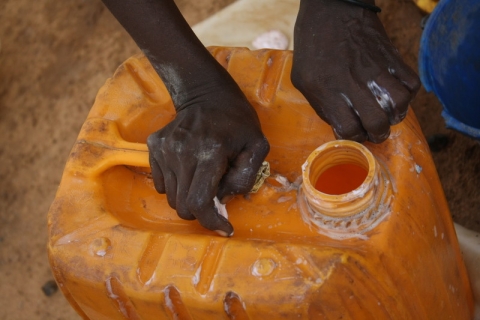
As part of the Knight International Media Innovators blog, the ICFJ Knight team will round up stories focused on how their fellows are making an impact in the field. Find out more about the fellows' projects by clicking here.
impactAFRICA launches competition for water and sanitation reporting, projects developed by ICFJ Knight Fellows featured in innovation report and more from the Knight Fellows in this week’s roundup.
impactAFRICA launches new data-driven storytelling contest
On Thursday, Code for Africa and ICFJ launched the second round of the impactAFRICA data-driven storytelling challenge, focusing on water and sanitation stories in Ghana, Kenya, Nigeria, South Africa, Tanzania and Zambia. impactAFRICA, Africa's largest fund for data-driven storytelling, will sponsor trips for the three winning journalists to visit media outlets in the United States. Stories can be produced in any format, but must be published between March 30 and June 30 to be eligible. The contest is the second of four rounds of the impactAFRICA challenge. The first contest, closing April 15, focuses on in-depth investigative reporting on health and development issues.
ICFJ Knight Fellow projects impact key areas of media development, new report says
Deutsche Welle’s DW Akademie has published a report about innovation in the Global South. Five projects that ICFJ Knight Fellows helped to launch or expand - Africa Check, African SkyCAM, CGNet Swara, InfoAmazonia and Poderopedia - were among the 16 highlighted. The report analyzed the projects’ impacts on media development and freedom of expression worldwide.
InfoAmazonia highlighted on Google’s official blog
Collecting reliable data can be one of the biggest challenges of studying water contamination in developing rural areas. For World Water Day, the official Google blog highlighted the work of former ICFJ Knight Fellow Gustavo Faleiros that has improved data collection in this area. In 2014, Faleiros won Google Impact Challenge: Brazil with his InfoAmazonia data collection project, which involves a network of sensors that can send a text message to residents and officials if they detect water contamination. Faleiros plans to expand InfoAmazonia to include an open-source toolkit and a citizen-led initiative that will allow locals to install their own sensors.
Open data initiatives in Africa may promote economic growth
Boosting open data resources could improve African economies by helping investors to plan better and make wiser investments, wrote Bitange Ndemo in a new blog post on Medium. Ndemo helped to start Code for Kenya and serves on Code for Africa’s advisory council. African economic surveys are often missing granular data, and in some cases the data is inaccessible to the public, “probably trapped somewhere, on a dusty bookshelf in some ministry office,” he said.
Why Taringa! can save journalism
Taringa!, the largest social network in Latin America based on content distribution, is poised to reinvent media revenue sharing and content creation models, ICFJ Knight Fellow Mariano Blejman wrote in a blog post (published in Spanish and English). In the coming months, Taringa! will allow journalists, media organizations and other content creators to publish their stories on the site and profit from its new revenue-sharing model. In another post, Blejman analyzed the 10 users and 10 stories that have earned the most money from the revenue- sharing project that Taringa! already has in place for its existing users. The top-earning article was about an 81-year-old woman who killed her granddaughter’s rapists.
This post is also published on IJNet, which is produced by ICFJ.
Main image CC-licensed by Flickr via Oxfam International.